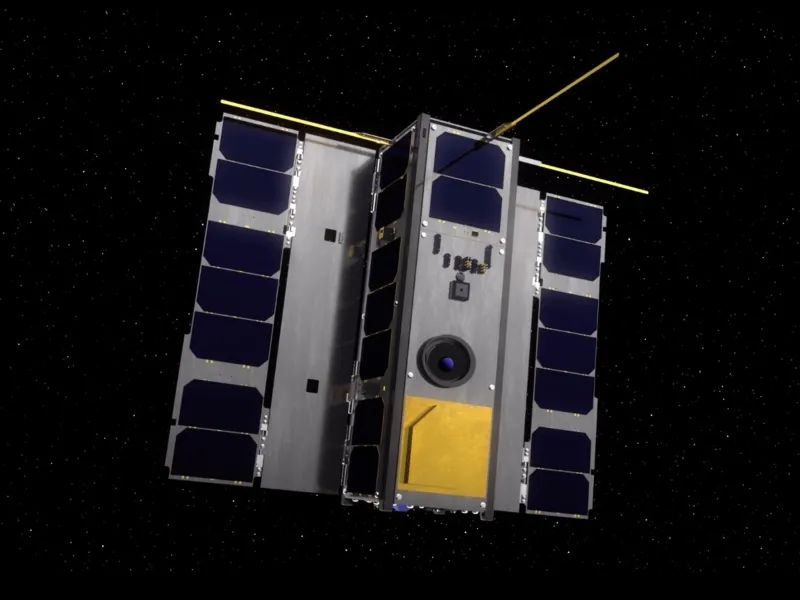At the heart of Digital Transformation
Cybersecurity, Big Data, Artificial Intelligence & many more
At the heart of Digital Transformation
Cybersecurity, Big Data, Artificial Intelligence & many more

With the progressive introduction of digital communications satellites and Earth observation systems capable of gathering increasingly large amounts of data, prime contractors need to better protect and secure their systems and process these huge volumes of data with the flexibility needed to address new markets with disruptive solutions. This is the purpose of the digital transformation of our company — which is bringing in new skills in cybersecurity, big data, artificial intelligence, cloud computing and other disruptive technologies.
Cybersecurity and digital platforms

The huge increase in the number of cyberattacks and attempted attacks by individuals and states is no secret. Satellite systems could well become a target, so it’s vital to ensure maximum security and protect against any potential breaches.
The cybersecurity of space systems is a key parameter that must be designed into ground and space segments, especially on all-digital systems.
Thales Alenia Space’s response to the cyber threat is to implement the most advanced and effective tools and processes at the engineering, design and support phases of in-orbit operations. Cybersecurity shouldn’t be limited to individual components. Rather, the entire system must be considered in a holistic, end-to-end approach. At the design stage of the space segment, following the same standard cybersecurity approach as the ground segment, we integrate segregation of physical and software domains to ensure secure control of the satellite while allowing full independence between payload operations. We also enable on-demand integrity checks in each domain to immediately detect if any onboard software is corrupted so it can be quickly fixed.
To protect the ground segment, we use a generic cybersecurity architecture based on cyberdefense best practices coupled with a set of protection and detection modules, including specific Thales products and solutions.
By combining Thales Alenia Space’s expertise in high-tech satellite systems with Thales’ technological capabilities in cybersecurity, we offer a complete range of cybersecurity solutions to protect the ground and space segments. Capitalizing on the complementary nature of our two areas of expertise, we integrate satellite-specific components into standard Thales cybersecurity products. A prime illustration is Thales’s intrusion detection sensor, which is adapted to take account of space-specific protocols, and the Thales Cybels Analytics all-in- one platform for advanced AI-driven detection, analysis and response.
Ensuring the constant protection and integrity of a system is no mean feat, because of emerging vulnerabilities and threats. Thales Alenia Space offers a security maintenance service to detect and analyze issues, develop fixes and apply them on an active system. This solution is coordinated by dedicated teams of cybersecurity experts and includes proprietary tools to quickly respond to cyberthreats.
Artificial intelligence and big data

Artificial intelligence and big data technologies (the mass processing of extremely large datasets) are intrinsically linked. Without AI, how would it be possible to process, analyze and exploit such huge volumes of data? AI is driving advances in many sectors of activity — and space is no exception.
These new technological capabilities, coupled with cybersecurity, allow us to create value from space system data for the benefit of our customers.
AI makes it possible to process and analyze imagery, for example, and to detect potential anomalies, obtain platform trajectory information and analyze telecommunications signals in order to identify jamming threats. AI has an exceptional range of potential applications in Earth observation, satellite navigation and telecommunications. It will help make satellites smarter. Future satellites with built-in artificial intelligence technologies will be able to perform tasks such as automated detection of anomalies, predictive maintenance, root cause analysis and decision making. AI offers a unique pathway to satellite autonomy.

In the telecommunications market, operators are increasingly acquiring digital satellites, which are extremely flexible, software driven and reprogrammable in orbit. In just six months, three major operators — SES, Intelsat and Arabsat — have chosen our company’s Space Inspire solution. This type of satellite is designed to be ever more autonomous. Concerning constellations of the future, artificial intelligence will help process the huge datasets involved. AI will be used to define the most efficient algorithms and support satellite optimization and resource allocation.
Real-world examples of AI in our satellite solutions
Artificial intelligence on OPS-SAT

Launched in December 2019, OPS-SAT is a European Space Agency (ESA) technology demonstrator. Its purpose is to demonstrate the improvements in mission control capabilities that will be possible when satellites carry computers as powerful as those on the ground today. A real “flying laboratory”, this CubeSat is being used to test and validate new techniques in mission control and onboard systems. The program was led by Graz University of Technology in Austria as prime contractor, with European partners.
Thales Alenia Space coordinated and funded the CIAR autonomous and responsive image chain project with our partners at the IRT Saint-Exupéry technological research institute in France. The purpose of the CIAR project is to study the technologies needed to implement artificial intelligence in order to process onboard imagery (robotic platforms, satellites, drones, etc.).
After a call for candidates, CIAR was selected to carry out in-orbit demonstrations as part of the OPS-SAT mission. In 2021, the CIAR consortium worked with ESA to upload a neural network onto an FPGA (field programmable gate array) on the satellite. Deploying a neural network on this type of in-orbit equipment has never been done before.
OPS-SAT has an onboard computer and a small camera with a resolution of 50 meters (164 ft). Not all AI use cases are possible at this resolution. One of the services identified by the CIAR team, however, is cloud detection in images. Pixels covered by cloud can’t be used to generate maps, for example, or monitor the evolving situation in a military theater of operations. By identifying cloud-obscured pixels with a high degree of accuracy, it’s entirely conceivable they can be eliminated at source in order to preserve satellite memory and bandwidth. This is exactly the kind of application that can be tested on OPS-SAT.
Artificial intelligence on satellites paves the way to a huge array of applications. In environmental monitoring, AI could be used to raise real-time alerts in the case of fire
outbreaks, marine pollution and many other types of potential disaster. In defense, it could be used to quickly locate (in just seconds) objects of interest in a vast theater of operations.
A pioneer in space edge computing

In April 2022, Thales Alenia Space and Microsoft signed a memorandum of understanding to explore the development of new capabilities in onboard space edge computing (SEC), AI- based space observation tools (DeeperVision) and the digital ground segment.
Thales Alenia Space will work with Microsoft to provide advanced connectivity, analysis and computing solutions in space thanks to onboard SEC capabilities. To this end, the two companies will demonstrate and validate technologies and computing capabilities on the International Space Station in 2023. Our company will deploy a powerful in-orbit computer, an application framework and high-performance Earth observation sensors on the ISS in order to develop new in-orbit climate data processing applications and better protect our planet. Thales Alenia Space will work with Microsoft Research in remote sensing, computer vision and climate science to demonstrate the potential of next-generation in-orbit computing for Earth observation. This SEC capability will allow faster and more targeted gathering of data with immediate applications for monitoring, understanding and protecting our planet.

ISS © Thales Alenia Space/Master Image Programmes
The two companies will step up the collaboration started in April 2021 in AI-based space observation tools with the integration of Thales Alenia Space’s DeeperVision Earth observation data analytics software into the Microsoft Azure Orbital platform. DeeperVision is a key digital service for quickly and systematically mass processing Earth observation satellite imagery. Customers will be able to use all the features of DeeperVision for processing dataflows and generating timely information with the cloud capabilities of Azure Orbital. In addition, DeeperVision is one of the software applications that will run on the ISS using SEC capabilities. Thales Alenia Space intends to democratize space observation with Microsoft by marketing accessible AI Earth observation tools (such as DeeperVision) for developers.
The company also intends to accelerate the deployment of ground stations and extend connectivity with Microsoft by designing and promoting a joint managed services proposal to deliver ground station virtualization as a service.
Innovation and digital transformation at Thales Alenia Space

In today’s fiercely competitive satellite market, you have to manufacture “more, faster and cheaper”. New technologies have become the key to building more satellites in less time, against the backdrop of a fast-evolving industrial environment. The Factory of the Future therefore aims to introduce state-of-the-art, highly cost-competitive technologies that are essential to the company’s digital transformation.
Many innovations have taken shape in recent years, among them additive manufacturing, virtual and augmented reality, the Internet of Things, robots and cobots (collaborative robots designed to work with human operators on the factory floor). Thales Alenia Space is at the forefront of these trends, with the deployment of Factory 4.0 solutions such as the SAPHIR robotic assembly system in Cannes (France), the CRATOS collaborative robot in L’Aquila (Italy) and the new automated production site in Belgium. Innovation is an integral part of our DNA
Additive manufacturing, virtual and augmented reality, big data, cloud computing, artificial intelligence, robotics, cobotics, TWIN-X, SOLAR, COLROBOT and digital twins are all part of our strategy, leveraging innovation and digital technology to shape the factory of the future. The word “innovation” may have become something of a cliché, but its essential meaning comes into its own at Thales Alenia Space!
